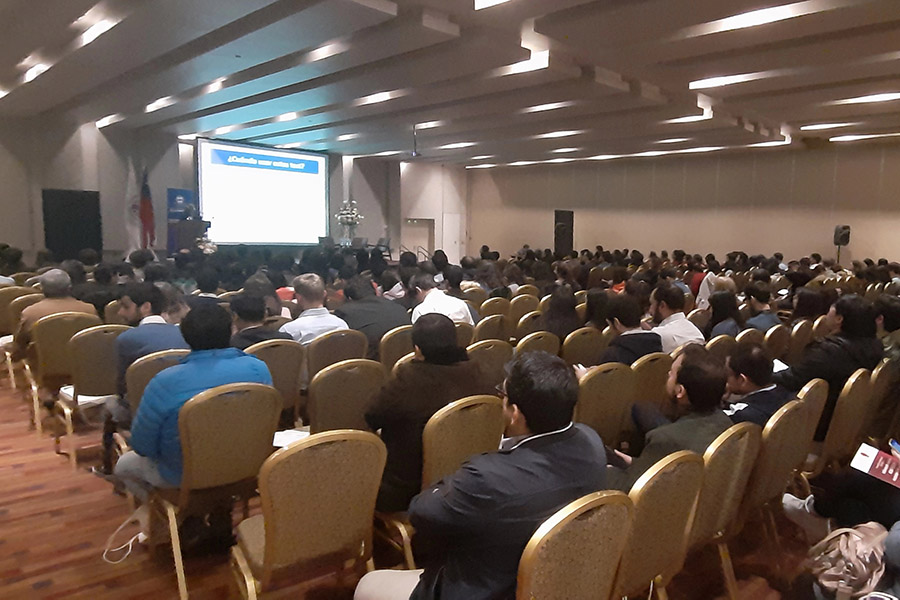|
About 400 participants got together at the Convention Center of the Dreams Hotel in Temuco, Chile, to deepen their knowledge at the 26th Conference on Internal Medicine, a traditional event that was organized by the UFRO Department of Internal Medicine, with the support of the German Clinics (Clínica Alemana) of Temuco and Santiago. |
National and international guests came together at this new version of the annual Conference on Internal Medicine of the Universidad de La Frontera, which is only one of the academic events the UFRO Faculty of Medicine offers during this first semester. The academic Dr. Rolando Sepulveda was in charge of this event. He explained: “Epidemiologically, the number of chronic diseases increased and that leads to an increasing complexity in internal medicine. Many times we see that treatments and diagnoses are advancing by leaps and bounds and new pathologies have appeared.” This activity is organized by the UFRO Department of Internal Medicine of the Faculty of Medicine and annually brings physicians and medical students together to take a look at different topics in this medical field. One of the international guests was Dr. Salvador Alvarez, a Mexican infectious disease specialist who is affiliated with Mayo Clinic Hospital in Florida, USA. At the conference, he shared his knowledge on various versions of this issue. “I spoke about the human microbiome, which is a new concept, based on which a large number of microorganisms have been discovered that live in the intestine and play a key role in both, health and disease, especially regarding many chronic diseases, such as diabetes, atherosclerosis and obesity. We always thought that these bacteria were commensals, but today, we know that when they change, they modify the signals received by the intestine and that changes the chemical products. This process has a deep impact on the metabolism. We tested this on animals and the use of energy in the intestine,” Dr. Alvarez explained. “When we finally understand these processes, medicine will change, as well as the way we diagnose and prevent diseases. We could modify the human microbiota to prevent obesity or diabetes. At present, there are infections caused by bacteria, which are a huge problem in the United States. The most effective treatment in these cases is a fecal transplant. That means that we take fecal matter of a healthy person, a donor, and we transplant it in the intestine of the patient and that generally resolves the diarrhea. When we observe the microbiota before and after the transplant, we can see that it changes dramatically and becomes the donor’s microbiota. This is more effective than any other treatment. We need to train this process, so we will be able to apply it to many other diseases, too,” he added. This technique has also already been used in Temuco. “The medical teams for gastroenterology have already done transplants. In the United States, if a patient’s body does not respond to the treatment, we immediately go over to the fecal transplant. That has been done via endoscopy, but we have been able to dehydrate the fecal matter and to cover it with a film that slowly dissolves and reaches the intestine, where it grows again,” the Mexican physician, who spoke about this innovative procedure at the conference, explained.
Written by: UFRO Faculty of Medicine
|





